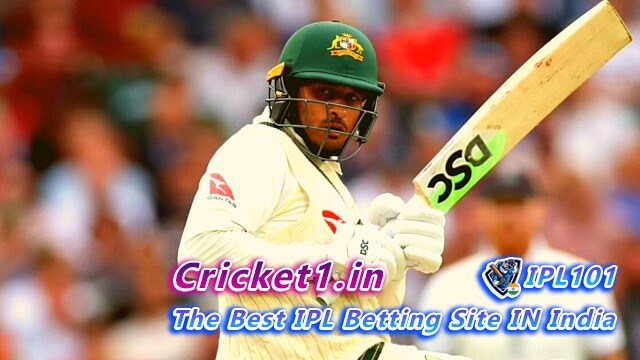
In a significant move on the cricket field, Australian cricketer Usman Khawaja chose to sport a black armband instead of the previously planned footwear with messages of solidarity for Palestinians in Gaza during the first Test against Pakistan in Perth at Optus Stadium on Thursday. The Pakistan-born batsman had initially planned to advocate for human rights through his cricket shoes that bore statements such as “Freedom is a human right” and “All lives are equal,” which he had previewed during a training session ahead of the Test.
However, the plans were revised following conversations within the team and with Cricket Australia regarding International Cricket Council (ICC) regulations. Australian captain Pat Cummins shared insights about Khawaja’s decision: “He had some words on his shoes. It’s one of our strongest points of our team that everyone has his own personal views and thoughts. I chatted to Ussie (Khawaja) about it briefly today. I don’t think his intention was to make too big of a fuss, but we support him. He said he won’t be (wearing them).”
Despite the change, Cummins highlighted that Khawaja’s message was universally humane and underscored the importance of equality, expressing his own support for the sentiment. However, the attention the shoes had drawn pointed towards ICC’s code of conduct—a set of rules that the talented opener might not have been fully aware of at first.
While Cricket Australia affirmed their support for Khawaja’s right to his personal stance, they also emphasized their expectation for players to adhere to ICC rules, which clearly prohibit the display of personal messages. The intensity of the issue is underscored by the significant casualties in Gaza, with the health ministry’s statistics revealing a harrowing number of lost lives due to the conflict.
Usman Khawaja, known for his outspoken nature on social issues, addressed the stirred sentiments on social media: “I’ve noticed what I’ve written on my shoes has caused a little bit of a stir. I won’t say much, I don’t need to. Is freedom not for everyone? Are all lives not equal?” His commitment to speaking up for the voiceless resonated throughout his statement, emphasizing the equivalence of human life regardless of background. Khawaja’s concerns are deeply personal, magnified by imaging his children in the places of those suffering, which drove his intentions behind his since-retracted act of protest.
Before taking to the field, Khawaja clarified his decision to Fox Cricket, expressing disappointment at the ICC’s selective scrutiny and highlighting inconsistencies in the enforcement of policies around personal expressions.
The ICC’s latest guidelines delineate clear expectations, aiming to utilize cricket as a unifying force rather than a platform for contentious political discourse. Previous precedents in international cricket, such as England batsman Moeen Ali’s banned wristbands in support of Gaza and Palestine, illustrate the ICC’s firm stand on political messages within the sport.
Interestingly, gestures like the Indian cricket team taking a knee in solidarity with the Black Lives Matter movement during the T20 World Cup demonstrate the fluid interpretations of what constitutes a political statement, bringing attention to the delicate balance between supporting humanitarian issues and adhering to cricket’s governing codes.
This incident brings forth complex questions around freedom of expression, the role of sports in political and social issues, and the governance of international cricket by the ICC. Khawaja’s ultimate choice to wear a black armband symbolizes a compromise within the confines of the regulations, while still conveying his empathetic message regarding the situation in Gaza.

